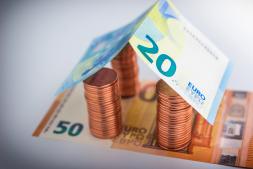On 1 January 1999, 11 EU countries fixed their exchange rates, agreed to follow a single monetary policy entrusted to the European Central Bank, and launched their new common currency on world financial markets.
Today, the euro is one of the most important currencies in the world, the official currency of 20 EU countries, used by about 350 million people every day.
Euro notes and coins are a tangible, everyday reminder of the freedom, convenience and opportunities that being part of the European Union makes possible.
Save and invest with confidence
The euro is a stable currency, so you can spend money safely and borrow and invest with confidence.
Travel
As a single currency shared by 20 EU countries, the euro has made it easier and cheaper to travel in the euro area.
Do business
The euro makes it easier, cheaper and safer for businesses to buy and sell across the euro area and to trade with the rest of the world. Almost 60% of exports of goods outside the euro area, and around half of the imports of goods in the euro area are invoiced in euros.
Go shopping
The euro makes it easier and cheaper to compare prices and shop abroad. A common currency supports a more transparent and competitive EU single market.
Work, study or retire abroad
The euro lowers the costs of travelling and transferring money so that moving to another country to work, study or retire has never been simpler.










